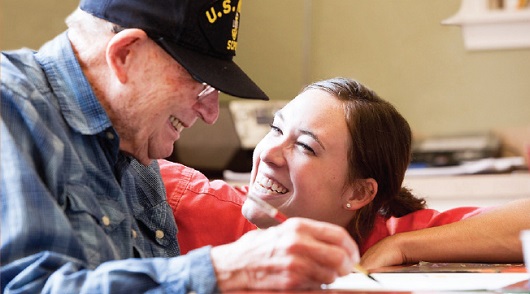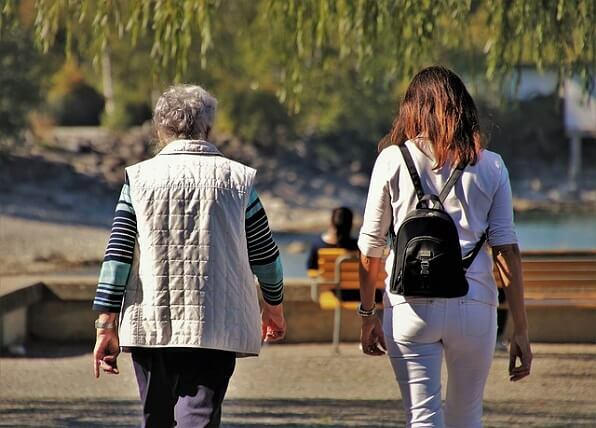
Every month, more than a dozen people who have been diagnosed with Alzheimer’s disease gather around a table to share their stories and strategies for living. At least half of them are still in the work force. All of them are great people who prove with their lives that “Anything is Possible,” as Hallerin Hilton Hill would say.
When this group of individuals with early stage Alzheimer’s meets at the Alzheimer’s Tennessee resource center on Kingston Pike in Knoxville, they also discover positive ways to continue to pursue their interests and spend meaningful time with their loved ones.
For individuals with Alzheimer’s and related dementias who are early in their journeys, they also have the unique opportunity to share their wishes, help shape the future of their care and prepare loved ones with knowledge.
Family and professional caregivers who connect with Alzheimer’s Tennessee for support also learn that it is positively possible to connect with individuals who may be further along in their journeys with Alzheimer’s disease.
For more than 30 years, Alzheimer’s Tennessee, Inc., a not-for-profit organization has worked to fulfill its mission: To serve those facing Alzheimer’s disease and related dementias, promote brain health through education and champion global prevention and treatment efforts.
Through one-on-one counseling and “Caring & Coping” workshops, Alzheimer’s Tennessee encourages care partners to practice the following strategies for communication and coping:
Understand that communication begins with non-verbal signs, including gestures, facial expressions and stances can help caregivers shape their approach. Even if individuals’ brains struggle to process verbal information because of dementia, they may still interpret what is being said through body language. So, smile, use a gentle touch, and approach the individual from the front to avoid startling.
Thoughtful communication techniques like “cueing” can also help. Individuals with Alzheimer’s may be able to mimic your behavior when their brains are incapable of processing your words. Through gestures, illustrated signs posted in rooms throughout the home, and old photos and music, caregivers may find ways to demonstrate instructions and positively connect with a loved one’s past, where that person may be “living” today.
Learn to apologize instead of confront, accept and offer reassurance – not correct, and phrase simple questions in environments free from noise, movement and distraction to make communicating possible for caregivers and those impacted by Alzheimer’s and related dementias.
Remember how important your job is. You are caring for another human being when he or she is most fragile and vulnerable. Remind yourself that the person is truly confused, losing control and perhaps frightened. Use deep breathing to remain calm and be willing to try lots of different solutions until one works.
Join thousands of people who will walk to put Alzheimer’s families, education, and research first at the upcoming 25th Anniversary Knoxville Alzheimer’s Tennessee WALK on Saturday, April 18, 2015.
For more information about the WALK and “Caring & Coping” workshops in Blount County on Tuesday, March 31 and in Knox County on Tuesday, May 19, please call 865.544.6288 or visit www.alzTennessee.org


Comments